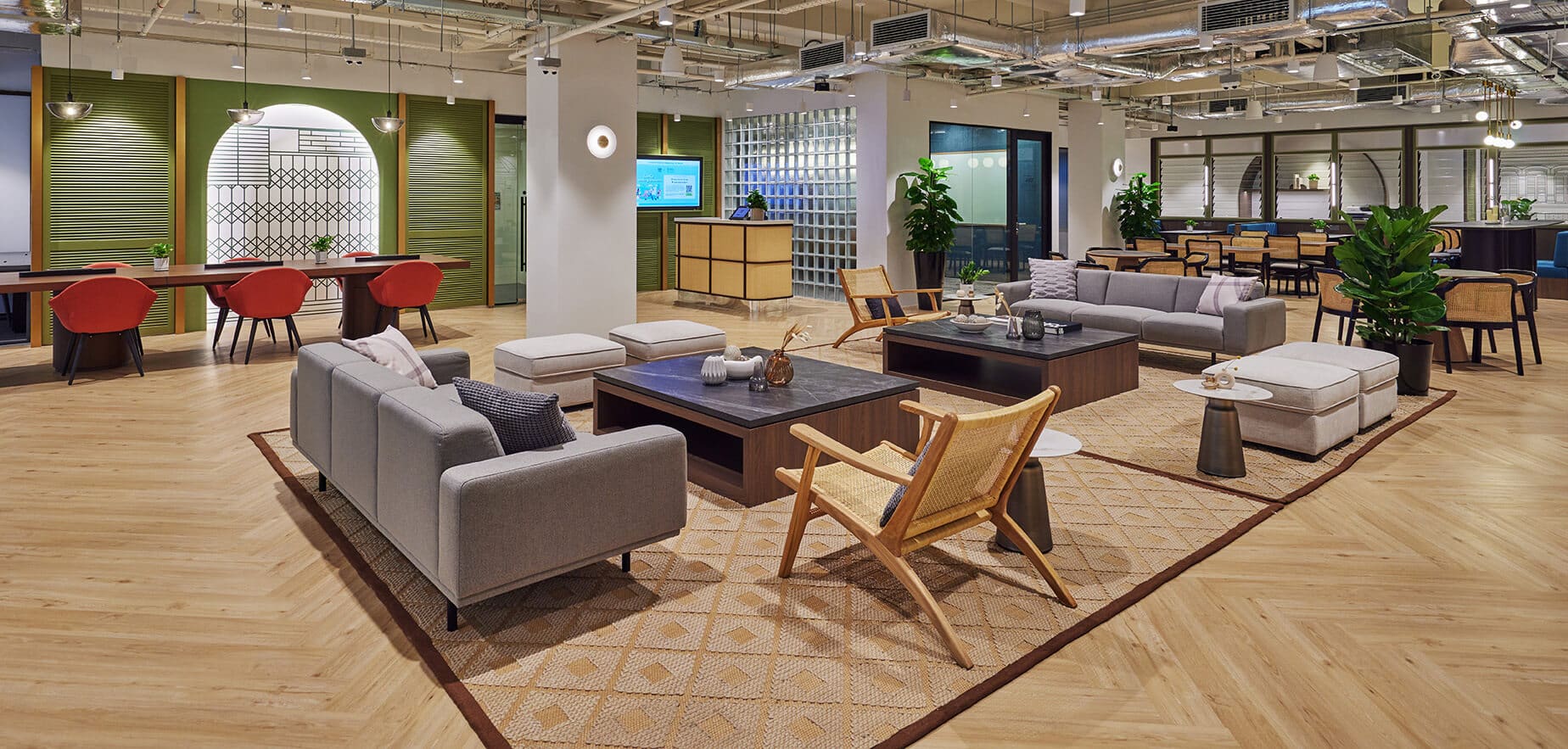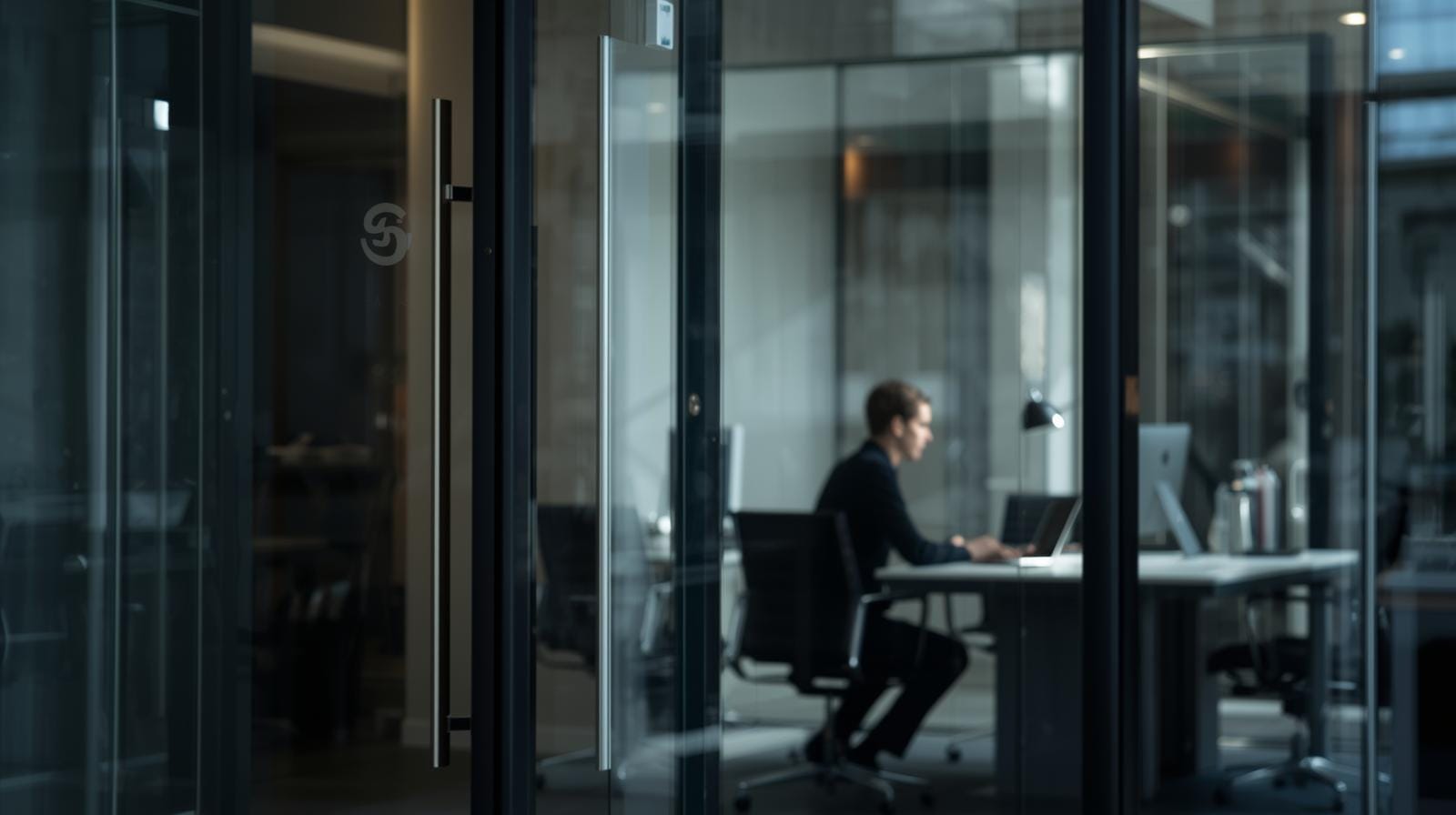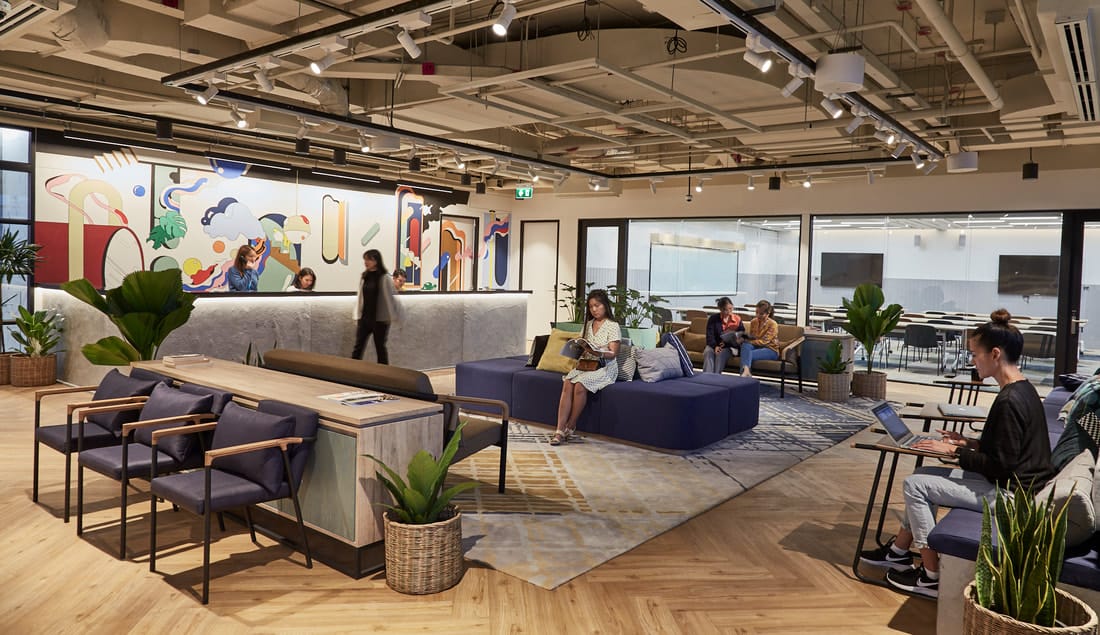Four Walls or Flexibility? A Startup’s First Big Decision
Imagine you’ve just launched a startup in Bangkok with big ambitions and a lean budget. Your fledgling team needs a place to work, brainstorm, and meet clients – but every baht counts. Do you commit to a long-term lease on a private office, or do you opt for the pay-as-you-go world of a serviced co-working space? It’s a decision that could shape the trajectory of your business from day one, setting the tone for how agile or encumbered your operations will be. In an era when being “lean” isn’t just a buzzword but a survival strategy, choosing between four walls of your own or a shared space among fellow entrepreneurs has become a defining dilemma for new businesses.
“Office space can eat up your seed capital or become a catalyst for growth – it all depends on how you set it up.”
This choice isn’t just about real estate – it’s about flexibility, cash flow, and even company culture. A traditional private office offers the comfort of control and permanence: your logo on the door, your own meeting rooms, and the ability to tweak the environment to reflect your brand. But that comes at a steep price, especially in prime Thai city locations where rents and deposits can swiftly consume a startup’s slim reserves. On the flip side, today’s serviced offices and co-working hubs promise turn-key convenience. For a fraction of the upfront cost, you get a ready-made workspace with Wi-Fi, coffee, and conference rooms – available on demand, with no long leases attached. The lean startup ethos of “move fast and keep overhead low” aligns naturally with this new flexibility. Yet, the decision isn’t black-and-white. To navigate it, founders must weigh immediate cost savings against long-term vision, and the vibrancy of a shared space against the privacy of an office to call one’s own.

The Co-Working Advantage: Cutting Costs and Building Connections
Every satang saved in the early days of a business is fuel for development and marketing, and co-working spaces have emerged as a powerful ally in this regard. The financial logic is straightforward: why sink capital into a traditional office lease – along with its hidden costs – when you can pay only for the space and services you need? In a serviced co-working hub, the monthly membership covers far more than a desk. High-speed internet, ergonomic furniture, electricity, air conditioning, cleaning services, and even free coffee come bundled in. There’s no need to lay out a hefty security deposit or invest in office furniture, let alone worry about monthly utility bills creeping upwards. For a bootstrapped founder, this can free up thousands of baht that would otherwise be locked away in office setup costs.
Flexibility is another hallmark of the co-working model. If your team grows from two to ten employees overnight, you can scale up by simply adding a few more memberships – no renovation or relocation required. Conversely, if you need to downsize or embrace remote work for a season, you’re not trapped in a long lease paying for empty chairs. This elasticity extends beyond just headcount. Co-working providers in Thailand typically offer a menu of options, from hot desks and dedicated desks to private micro-offices within the shared space, letting you dial your commitment up or down as circumstances change. Speed is on your side as well: instead of waiting weeks for a leased office to be ready – signing contracts, setting up internet, buying equipment – a co-working space lets you and your team plug in and get to work the same day you decide to join. It’s a plug-and-play solution for the startup era, turning the old mantra of “time is money” into a very literal advantage.
“In a good co-working space, everything’s ready – from Wi-Fi to whiteboards – so you can spend your time building your product, not assembling partitions.”
Beyond pennies and practicality, co-working brings less tangible but equally valuable perks. Walk into a bustling co-working venue in Bangkok’s Sukhumvit or Chiang Mai’s Nimman district, and you’ll feel an energy that’s hard to replicate in a small private office. Surrounding yourself with other creators and innovators can inject momentum into your own project. Need advice on navigating Thai business regulations or a second opinion on your app’s UI design? Chances are high that the expertise is a few desks away, thanks to the built-in community of entrepreneurs, freelancers, and mentors that co-working spaces cultivate. These hubs often host networking events, workshops, and informal meetups over coffee or craft beer, seeding connections that could become partnerships or friendships. For a new founder in an unfamiliar market, that community can act like an extension of your team – a support network as you find your footing. In short, a shared office can offer not just cost savings and convenience, but also a sense of belonging to a like-minded tribe all striving to turn ideas into reality.

Where Private Offices Prevail: Privacy, Branding, and Control
Co-working isn’t a silver bullet for every scenario. As your startup matures, or if you operate in an industry that demands absolute discretion, the limitations of shared spaces become clearer. Privacy tops the list. While open-plan lounges and glass-walled meeting pods foster collaboration, they can also put sensitive discussions on public display. A fintech startup dealing with confidential client data or a legal consultancy meeting high-profile clients might wince at the thought of being overheard through thin partition walls. In a private office, four walls aren’t just physical boundaries – they’re safeguards for intellectual property and sensitive conversations. For some founders, peace of mind alone is worth the price of a standalone space.
Brand identity is another factor tilting the scales back toward traditional offices. There’s an undeniable allure to having an address that is solely yours – your company name on the lobby directory, your custom decor on the walls. It’s not just vanity; it can signal stability and seriousness to investors or partners. Walking a potential client into a space that reflects your startup’s culture – whether it’s minimalist chic or plastered with sprint diagrams and product sketches – can create a stronger impression than a generic meeting room at a co-working site. Control is a key advantage here: with a leased office, you decide everything from the office layout and security protocols to the office hours and pet policy. You’re not subject to another organization’s rules or the ebb and flow of strangers sharing your space.
“Sooner or later, many startups outgrow the communal table – and when that day comes, having a door to literally shut can feel like a milestone in professionalism.”
Cost, ironically, is also part of the private office’s appeal under the right circumstances. If your team is large enough or you require a space for the long haul, a dedicated lease can actually become more economical per person than paying premium co-working membership rates month after month. There is a crossover point – different for every company – where renting an office and outfitting it starts to make financial sense. Moreover, certain businesses accumulate assets and equipment (from prototyping tools to servers) that are impractical to lug in and out of a shared space or may not be permitted under a co-working facility’s terms. In such cases, an independent office isn’t just a vanity project; it’s a functional necessity. Ultimately, private offices offer a canvas where a growing startup can paint its own identity and operate on its own terms. The trade-off, of course, is the higher upfront costs and reduced flexibility. Founders must gauge when the benefits of control and customization start outweighing the lean efficiency that got them through the early days.

Trend Check: The Rise of Flexible Workspaces in Thailand and Beyond
To put this debate in perspective, it helps to step back and look at the broader trends. What was once a niche solution for freelancers has become a global movement reshaping how companies of all sizes approach office space World Business Outlook. In fact, traditional office rentals were among the biggest expenses for startups in the 1990s, but the spread of coworking has slashed those initial costs significantly. Today, the flexible workspace sector is booming. By the late 2010s, coworking spaces worldwide crossed the one-million mark in membership, and that figure has only soared since. Industry surveys show that the number of people using coworking offices is on track to quintuple within a decade, and the Asia-Pacific region – led by China, India, and Southeast Asia – now hosts over half of the world’s coworking spaces. Bangkok itself ranks among the top five cities globally for coworking growth, with hundreds of shared offices popping up from downtown high-rises to suburban enclaves. In Thailand, industry forecasts predict the coworking market to expand by double digits annually, reflecting a workforce that is embracing mobility and demanding more flexibility from employers and workplaces.
What’s driving this seismic shift? In part, technology has untethered work from any fixed location – if your files and meetings live in the cloud, why anchor your team to one address? At the same time, the gig economy and startup culture have normalized the idea that a company can be professional without being traditional. Even large corporations are increasingly opting for satellite teams in co-working spaces, drawn by the innovative atmosphere and easy setup. The events of recent years – including a pandemic that forced businesses globally to rethink remote work – have only accelerated acceptance of non-traditional offices. Employees and founders alike have gotten a taste of flexibility, and few are eager to return to rigid arrangements if they can help it. Co-working operators have evolved too, offering more tailored experiences: think niche spaces focused on fintech, wellness, or creatives, and hybrid models that mix dedicated offices with shared perks under one roof. The upshot is that flexible workspaces are not a passing trend, but an integral part of the modern business ecosystem. For entrepreneurs in Thailand and beyond, that means having viable alternatives to the old-school office – and the freedom to choose an environment that aligns with their strategy and stage of growth.

Leaner and Wiser: The Evolving Office Journey
For every startup, the question of co-working space versus private office isn’t a one-time fork in the road – it’s an ongoing journey. In the beginning, flexibility often wins out. The ability to conserve cash, move fast, and tap into a community can give a young company an early edge. But as businesses mature, priorities shift. Suddenly, the things that were once acceptable compromises – a little noise here, a lack of permanent space there – might start to chafe. The beauty of today’s office landscape is that it lets you pivot. You might start in a shared loft with a dozen other startups, and a year or two later find yourself signing a lease for a space that carries your company’s name on the deed. Or perhaps the opposite: an established firm shedding its fixed office for a downsized, flexible footprint to spur a culture change or cost cut. There’s no single right path, only the path that fits your needs at the moment.
“An office is no longer just a place—it’s whatever helps your team do its best work, whether that means two people in a coffee nook or a whole floor with your logo on the wall.”
Most crucially, founders are learning that adapting their workspace is just another part of adapting their business. Making the choice is less about declaring allegiance to one model or the other, and more about understanding what your venture needs at each stage. Early on, you might value agility and serendipity – the chance encounter at a co-working coffee machine that sparks a partnership. Later, you might value stability and branding – the confidence of walking into an office that’s undeniably yours. Both chapters can exist in the same success story. And as the very definition of “office” continues to evolve, tomorrow’s startups will likely blur the lines even further, perhaps operating with hybrid setups or entirely new concepts of workspace we have yet to fully imagine. In Thailand’s vibrant market, as in the rest of the world, one thing is clear: the freedom to choose how and where we work is greater than ever. And with that freedom comes the responsibility – and opportunity – to continuously shape our work environment into a competitive advantage, one decision at a time.

Enjoyed this insight? Sign up for our free newsletter to get expert Thailand guides and business tips delivered to your inbox.
Still stuck in 60-day cycles?
Turn short stays into a 5-year lifestyle with the Destination Thailand Visa — built for digital nomads, remote professionals, and global citizens ready to call Thailand home.
✅ Work online legally
✅ Stay without border runs
✅ Enjoy full-year living flexibility
Still juggling border runs or short-term visas?
Secure 10 years of certainty with the Long-Term Resident Visa (LTR) — designed for investors, executives, and global citizens who want to anchor their lives and assets in Thailand.
✅ Own property and invest with confidence
✅ Bring family under one stable visa
✅ Enjoy global tax efficiency and long-term peace of mind

Tired of coverage gaps or rejection at hospitals?
Protect yourself with Premium Expat Health Insurance — tailored for foreign residents, retirees, and long-term visa holders in Thailand who need global protection and local acceptance.
✅ Accepted by major Thai hospitals
✅ Meets visa and immigration requirements
✅ No more panic over surprise medical bills











